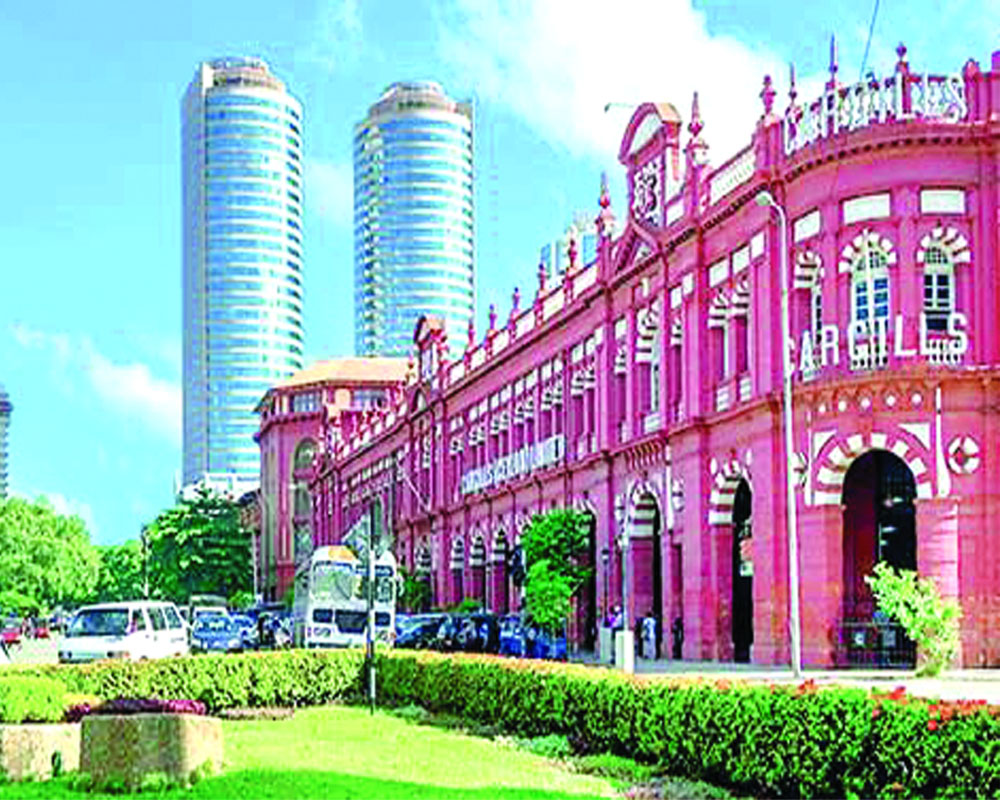Despite Sri Lanka’s slow and clumsy governance, it has performed well in developing its human capital. There is a clear emphasis on education, learning, and nurturing rational citizens, who respect one another. So, if the scaffolds of the nation fall, new young leaders will emerge as social and political reformers
I was in Colombo for the first time last month for the launch of my book in Sri Lanka. The city is beautiful — in an odd, cynical way. The chicest shopping and dining quarters of the city was once a dreary police station, before which it was a hospital built by the Dutch. An elegant recreational area once housed the Sinhalese Government offices, prior to which it was a mental asylum! The hotel where we stayed was built by a gallant British military general for his lover who was a local mestizo dancer, and boasted of a tunnel connecting to the lady’s house. So on and so forth.
At first sight, its people, however, seemed very familiar — it felt as if I had never left India. It was only when we spoke about Dutch relics, orphaned elephants, and the island country’s chequered modern history strife with civil war and weak governance, I was reminded that I was in Ceylon.
Amidst the conversations, I found two events in Sri Lanka’s political history to be especially peculiar. One was that Sri Lanka became a republic more than two decades after gaining political independence in 1948. Even after the British had retreated, the British held economic, ideological, and political influence in Sri Lanka until 1972. This was in stark contrast, to say, India, where we became a Republic only three years after our Independence, and immediately set in place a formidable constitution as well as economic, educational, and political institutions. The second event that surprised me was that Sri Lanka had established universal suffrage a decade before its Independence! Elsewhere it usually would be the other way around in the chronology of events. And so, Sri Lanka’s civil society has been democratically active and vibrant for far more number of years than the country’s political institutions.
A few months ago I had challenged my students at a university in Paris where I teach, to propose solutions to Colombo’s desperate urban planning crisis. The students immediately huddled in their study groups to research the situation and were abhorred when they learnt about the gigantic 300 feet dump — as high as a 14-storey building — of Colombo’s garbage that had recently exploded, collapsed, and killed 32 people.
Some students pointed out that the exact same scenario had played out in 2009 yet no corrective action had been taken. They suggested that, at the very least, the Sri Lankan Government should establish a Government policy for waste management. A waste management policy has allegedly been in the hands of the Sri Lankan Government since 1996, but it is still on hold. A few others spoke about leveraging technology for converting the massive amounts of waste to energy — this was a hugely lucrative opportunity, they said enthusiastically. Nonetheless they all emphasised that any solution must be accompanied by a definite change in attitude for residents of Colombo towards waste — the people of Colombo need to be more responsible.
Whilst my students pondered over solutions, Sri Lanka rejected a proposal from the Japanese Government to help with the country’s waste disposal. Anguished, I wrote in the newspapers to raise awareness about this appalling state of affairs and approached the Sri Lankan Government with the suggestions made by my students amongst other recommendations. These efforts fell to deaf ears. Local Sri Lankan Government authorities said they had other more important priorities and that they had no time nor money for any action on this agenda. My dear friend and a prominent and young Sri Lankan intellectual Asanga Abeyagoonasekara said it well: “Masons who built the walls of political culture in my country were so horrible, there are cracks everywhere and you see this every day. Usually when you build a good building you let the scaffolds fall, in Sri Lanka since Independence we can’t let the scaffolds fall because the masons… probably had no idea what they were doing.” Last month while visiting Colombo — a city emerging from the aftermath of war, struggling with weak governance, ethnic tension, and mountains of its own garbage — I discovered its people. There is an evident thrust on education amongst the Sri Lankans. There is a desire for reform and a cognisance that the country’s political establishment is still young and in a flux. I saw both women and men at work outside home, and couples I spoke to seemed to be equally involved parents to their children. Serious crime such as murder or rape, I was told, was unheard of. Health and well-being featured high on people’s priority, and the people I met were unmistakably calm and stress-free. The country has come a long way — its literacy rate in 1971 was 80 per cent, and now it is a laudable 96 per cent. In the latest Human Development Index report released last week, Sri Lanka ranked highest in South Asia for number of years of schooling, life expectancy, and it ranked least for inequality.
Despite Sri Lanka’s slow and clumsy governance, the country has evidently performed well in developing its human capital. There is a clear emphasis in society, school, and family on education, learning, and nurturing rational, independent-minded, healthy citizens who respect one another. And this is why if the scaffolds of the Nation fall, I am full of hope that new young leaders will emerge as social and political reformers. In the long term, the defining characteristic of a nation is the collection of its people.
Miniya is the author of Indian Instincts: Essays on Freedom and Equality in India, Penguin Random House (2018), and the CEO of Sustain Labs Paris, the world’s first sustainability incubator. Email: miniya@labsparis.com


























